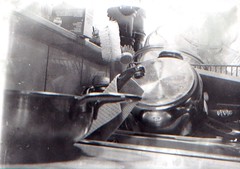Almost four years ago, I got a phone call telling me that I’d been accepted into the Banff Centre’s Literary Journalism Program. Thrilled by the news, I immediately went to the library (as I do at most major crossroads in my life) to do some research. I took out whatever I could find of Joan Didion’s work, since it was her legacy of smart, reflective and literary journalism that the Banff Centre aimed to foster. Since I didn’t even remotely consider myself a journalist, I figured I’d better see what I was getting myself into.
Didion is an author whom I’d somehow missed: she is famous for inserting herself into a story and telling about big events in a first-person voice, and master of balancing the big and the small.
She and her essays have often returned to my thoughts in the past couple of years, because she helped me dump some of my guilt about how I organize my days. Somewhere — I can’t remember where, and it’s been driving me crazy — Didion describes how domestic tasks have been an integral part of her writing process. She works in the morning, eats lunch early, and then turns to cooking or gardening in the afternoon, perhaps returning to work once again later in the day. At least, this is how she described her life before the deaths of her husband and daughter.
It’s exactly how I live now.
For a long time, my husband suspected that my mid-day meal prep, dishwasher loading or laundry undertaking were nothing more than time-wasting techniques. But now (two books later) even he admits that a balance between the creative and the mundane is necessary for my work.
These are my rhythms. When I let my brain rest, things have a way of working themselves out.
If it’s good enough for Joan Didion, then why not for me?
[Photo: ckintner]


